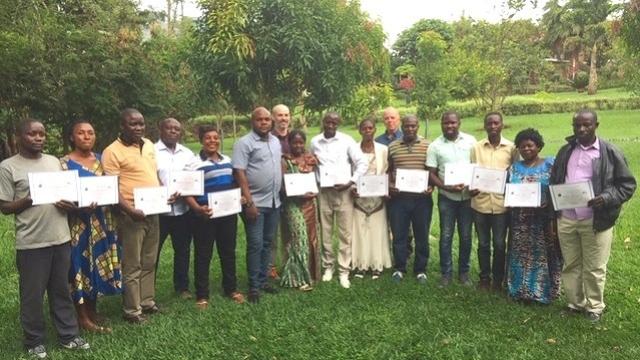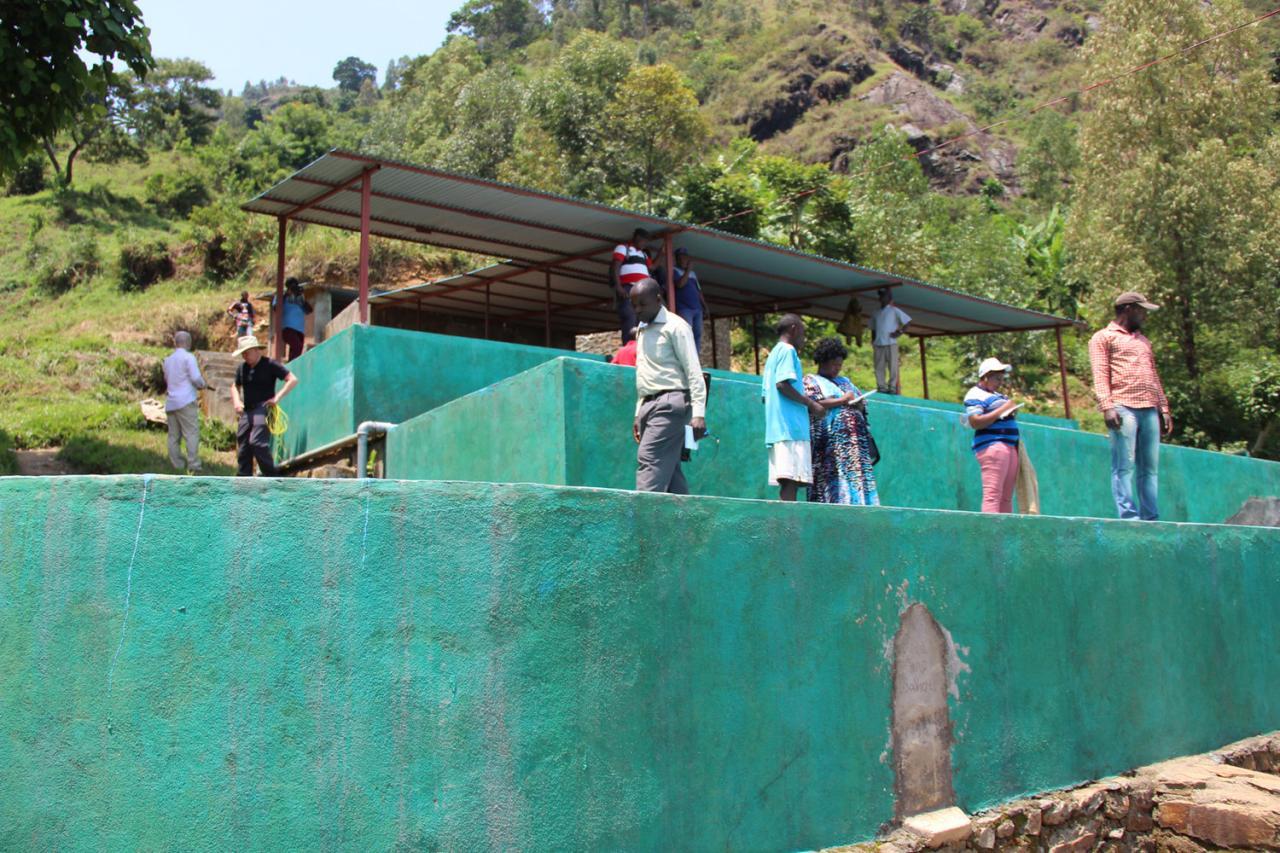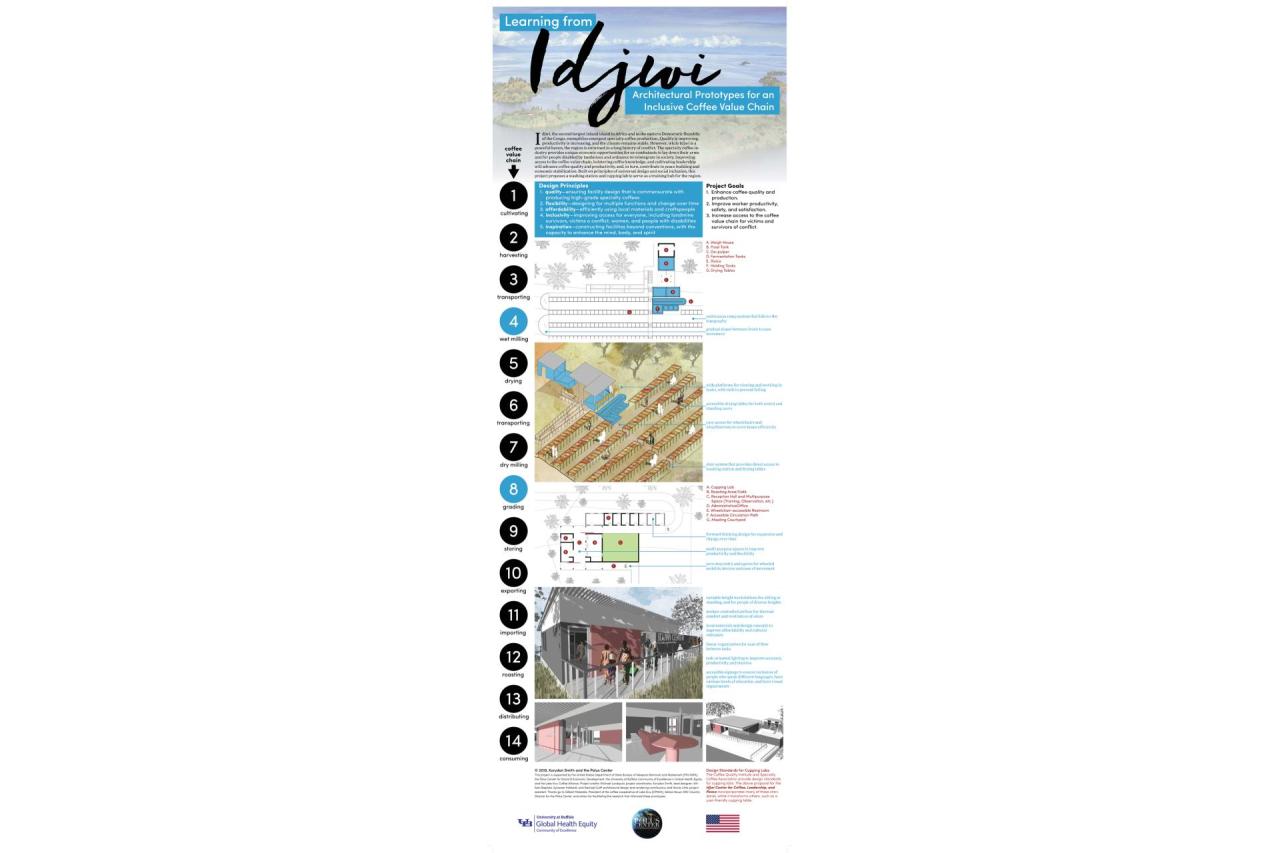
The Polus Center partnered with the University at Buffalo to introduce “Universal Design” to the Lake Kivu Region of the Democratic Republic of the Congo.
Building a More Inclusive Coffee Value Chain
With support from the US Department of State’s Bureau of Weapons Removal and Abatement the Polus Center sponsored a “Universal Design” workshop for coffee producers from the Eastern Lake Kivu region of the Democratic Republic of the Congo.
“Universal design is the design and composition of an environment so that it can be accessed, understood and used to the greatest extent possible by all people regardless of the age size, ability or disability.”
The workshop was led by Korydon Smith, Ph.D, professor and chair of architecture and co-director of the University of Buffalo's Community for Global Health Equity (CGHE). Trainees visited coffee washing stations and cupping labs to assess how design changes to their working environment can create greater economic opportunities for landmine survivors, victims of conflict and people with disabilities throughout the “Specialty Coffee” value chain. “ We believe that with improved design we can increase productivity, efficiency, and quality, while contributing to peace and stability in the community.” says Polus Center Executive Director, Michael Lundquist.
The team studied current practices and processes in use on their visits, collecting data and observing coffee production methods from an inclusive design perspective. Using this research, Korydon Smith and the Universal Design department at Buffalo University created schematic designs for a cupping lab and washing station built on the principles of “Universal Design” and social inclusion.
Last month the Polus Center was invited to present a panel discussion at the Specialty Coffee Expo in Boston MA to raise awareness about the issue of coffee in conflict and get feedback on the initial washing station and cupping lab designs. The next phase of the project is to build a coffee-cupping lab that serves as a leadership hub and offers a prototype that can be emulated throughout the coffee industry. Improved access, leadership development and capacity building will advance all aspects of coffee production while building peace and economic stability in the region.




